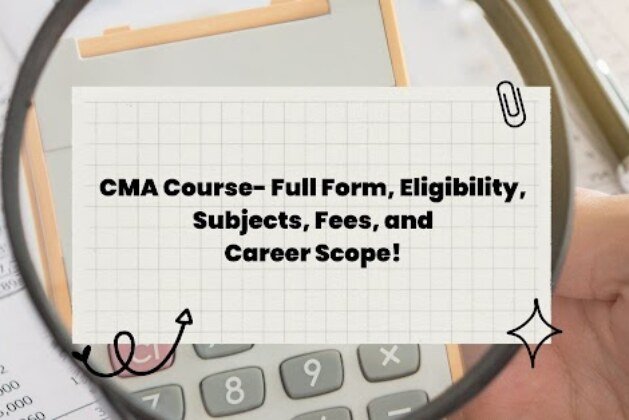Table of Contents
ToggleIntroduction
Looking for a career in finance that opens up new opportunities and offers a diverse range of roles? Look no further than the CMA course! The Certified Management Accountant (CMA) Course is one of the most sought-after courses in finance and accounting, offering professionals an understanding of financial planning, analysis, control, decision support, and professional ethics. This comprehensive guide will provide you with all the information you need to know about the CMA course- from its eligibility criteria to exam details to the fee structure.
What is CMA Course?
The CMA course is a professional certification program for individuals seeking a career in Management Accounting and Financial Management. It is offered by the Institute of Management Accountants(IMA) in the United States, and it aims to provide students with advanced knowledge and skills required for decision-making, planning, controlling, and performance evaluation.
The CMA course covers several topics such as financial statement analysis, risk management, internal control auditing, budgeting, and forecasting among others. The curriculum is designed to be comprehensive enough to equip graduates with practical skills that can be applied across various industries. To enroll in this program, one needs to meet certain eligibility criteria including holding a bachelor’s degree or equivalent from an accredited institution. Also, two years of relevant work experience is required on both parts of the CMA exam.
Completing this rigorous program demonstrates your commitment to excellence in finance and accounting. It opens doors to exciting job opportunities at top companies worldwide.
Also, read: FRM Course,CPA Course
CMA Course Eligibility Criteria
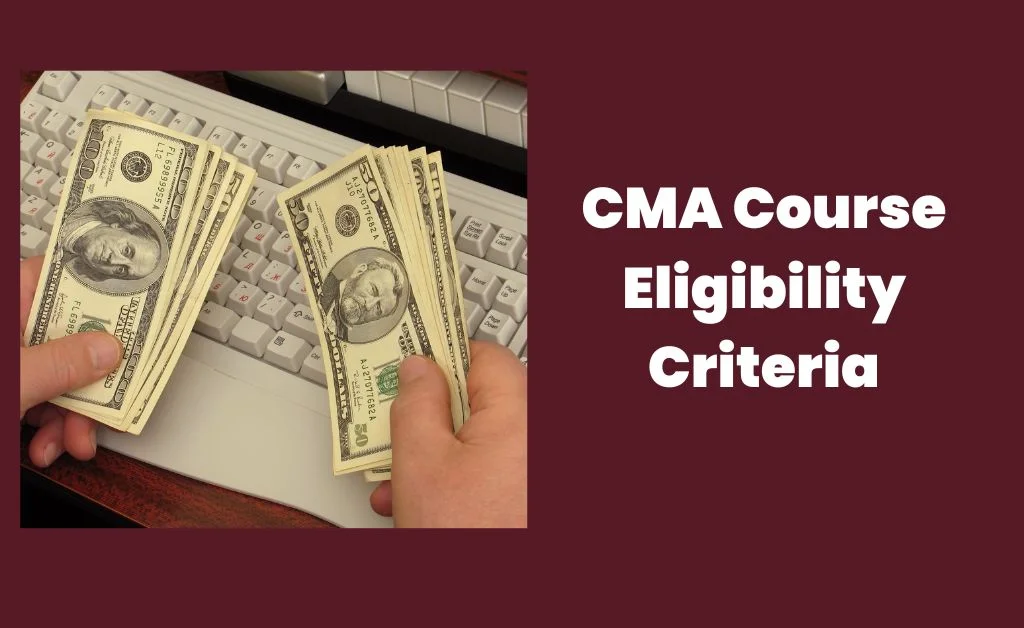
To enroll in the CMA course, you must meet certain eligibility criteria. The Institute of Management Accountants (IMA) has set these requirements to ensure that only qualified individuals take up this professional certification.
- For starting this course, Candidates should have a Bachelor’s Degree from an Accredited Institution. This is a mandatory requirement for all applicants before registering for the exam.
- Candidates are also required to clear Part 1 of the CMA examination before they can start preparing for Part 2. Therefore, it is recommended that candidates have some work experience relevant to management accounting or financial management.
- Candidates need to be proficient in English as all exams and study materials are available only in English. Hence, non-native speakers may need additional time and support during their preparation.
- There are no age restrictions or limitations on nationality when it comes to pursuing the CMA course. Anyone with a passion for accounting and finance can apply as long as they meet the above-mentioned criteria.
How to Apply for CMA Course
Applying for the CMA course is a straightforward process that can be done online involving these few steps:
- Firstly, you need to determine which testing window you want to take the exam in as this will affect your registration deadline. Make sure you check the IMA website for all necessary deadlines.
- Then, create an account on the IMA website and complete the registration form. You will need to provide personal information such as your name, address, and educational background. Additionally, there are membership fees associated with becoming a part of IMA so be prepared to pay these fees during registration.
- Once registered, you will receive a confirmation email from IMA along with instructions on how to schedule your exam at a Prometric testing center near you. It’s crucial that you schedule your exam early since spaces fill up quickly!
It’s important to note that passing both parts of the CMA exam is required before receiving certification so be sure to study hard and prepare yourself thoroughly!
CMA Course Subjects
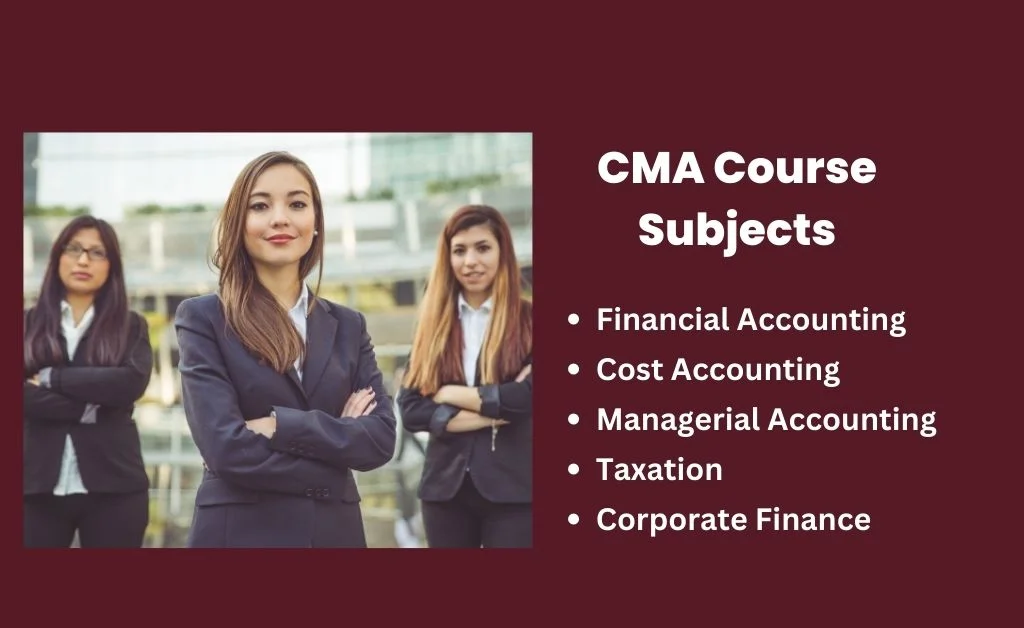
The CMA course curriculum is designed to equip students with the skills necessary to understand and manage financial transactions in any Business setting. The syllabus covers various subjects such as Financial Accounting, Cost Accounting, Management Accounting, Taxation, Corporate Finance, and more.
Financial Accounting is a subset of accounting that involves the process of recording, summarising, and reporting a plethora of transactions occurring from corporate operations throughout time. These activities are summarised in the preparation of financial statements, which include the balance sheet, income statement, and cash flow statement, and which document a company’s operating performance for a given period.
Cost Accounting a type of managerial accounting called cost accounting looks at both fixed and variable costs associated with each stage of production in order to determine the overall cost of production for a business. Cost accounting is not GAAP-compliant and should only be utilized internally.
Managerial Accounting, sometimes known as management accounting, is a type of accounting that generates statements, reports, and documentation to assist management in making better decisions about the performance of their firm. Managerial accounting is largely utilized internally.
Taxation can be used for a variety of things, but its primary function is to raise money for government spending. Hence, the knowledge of Taxation helps a lot.
Corporate Finance module focuses on capital structure decisions along with risk management strategies. Moreover, Ethics are also an integral part of the program which includes ethical issues related to professional conduct in organizations.
The CMA course curriculum provides comprehensive coverage of all major aspects of modern-day finance functions relevant to both public sector and private sector organizations.
Must Read: CA Course Subjects
CMA Course duration
The duration of the CMA course can vary depending on your level of commitment. In general, it takes about 2-3 years to complete the course.
The first step is to clear both parts of the CMA exam which is conducted by The Institute of Management Accountants (IMA). Once you pass both exams, you have three years to fulfill other requirements such as Education and Work Experience.
In addition to passing the exam, candidates must also hold a Bachelor’s degree from an accredited institution or equivalent professional certification. They should also show two continuous years of work experience in Management Accounting or Financial Management within seven years before or after passing the examination.
While completing all requirements for becoming a Certified Management Accountant may take some time and effort; it is definitely worth investing in if you want to pursue a successful career in finance and accounting.
CMA Course Fees
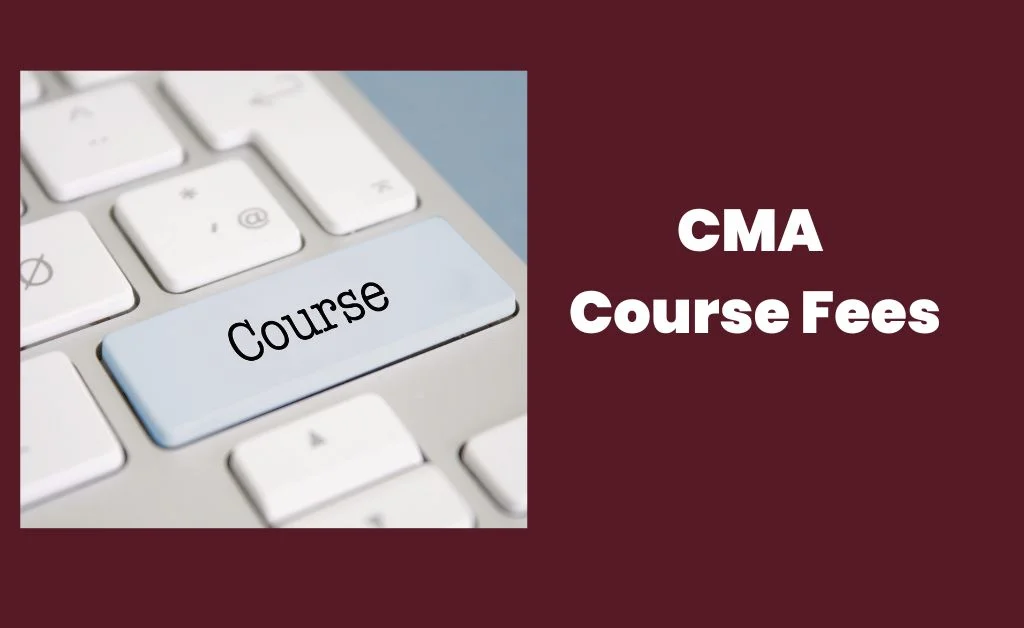
The fee structure for the CMA course varies depending on your location and whether you are a student or a working professional. The registration fee for Indian students is INR 20,000 while Working professionals have to pay INR 27,000. Similarly, International students have to pay USD 225 as registration fees.
Apart from Registration fees, there are exam fees that vary based on which level of the exam you’re taking. For example, if you’re taking both parts of the CMA Exam at once in India then it will cost INR 22k; alternatively if registering separately each part costs INR11K per attempt.
Furthermore, you should also consider Additional expenses such as Study materials and Coaching classes when budgeting for your CMA studies.
Pursuing a career in management accounting by enrolling in the prestigious CMA program comes at its own cost; however, it’s worth investing both time and finances into building yourself up professionally so that you can reach your full potential!
Top CMA Course Coaching Centers in India
When it comes to preparing for the CMA exam in India, there are a number of coaching centers that can help you get ready. These centers provide guidance and support to students who want to pass the exam with flying colors. A few of the best ones are:
- EduPristine has branches all over India, they offer both classroom and online training programs with experienced faculty members who have years of experience in teaching CMA courses.
- IMS Proschool offers personalized study plans based on each student’s strengths and weaknesses. Their classes cover all aspects of the exam including financial reporting, corporate finance, decision analysis, and risk management.
- Miles Education which offers a more intensive program, this center provides hands-on training through case studies and real-life scenarios that will prepare you well for the actual exam.
Some More Top Institutes include:
Hock International offers online classes, Vivaan Academy focuses on practical applications, and Logic School of Management which emphasizes analytical skills.
Benefits of the CMA Course
1) Global recognition: The CMA certification is globally recognized, and holders can work in various countries worldwide.
2) High earning potential: CMAs typically earn more than their non-certified peers due to their expertise and skills.
3) Career advancement opportunities: With a CMA certification, you can advance your career faster since you possess the right knowledge and skills for senior-level roles.
4) Enhanced credibility: A CMA certification enhances your professional credibility, making you stand out among other candidates during job applications or promotions.
5) Specialized knowledge: The program provides specialized training in areas such as management accounting, financial planning, analysis, and control- all essential skills for any finance-related role.
6) Continued learning opportunities: As a CMA holder, you have access to ongoing education programs that allow you to stay abreast of industry developments and trends continually.
7) Professional network expansion: Achieving the designation connects individuals with fellow professionals working within similar industries around the world through local chapters.
CMA Course Jobs and Salary
Pursuing the CMA course can be a highly rewarding career choice for those interested in finance and accounting. The course offers a comprehensive program that includes practical training, theoretical knowledge, and skill development.
As we have seen throughout this article, there are numerous job opportunities available to graduates of the CMA course. These include positions such as Cost Accountant, Financial Analyst, Budget Analyst, and Management Accountant.
The salary prospects for CMA graduates are also quite attractive with an average annual package of around ₹8-12 lakhs per annum at entry-level positions. With experience and expertise, one can earn up to ₹20-25 lakhs per annum or even more depending on their skills and abilities.
Know more about ACCA Salary in India
Top Recruiters of CMA Graduates
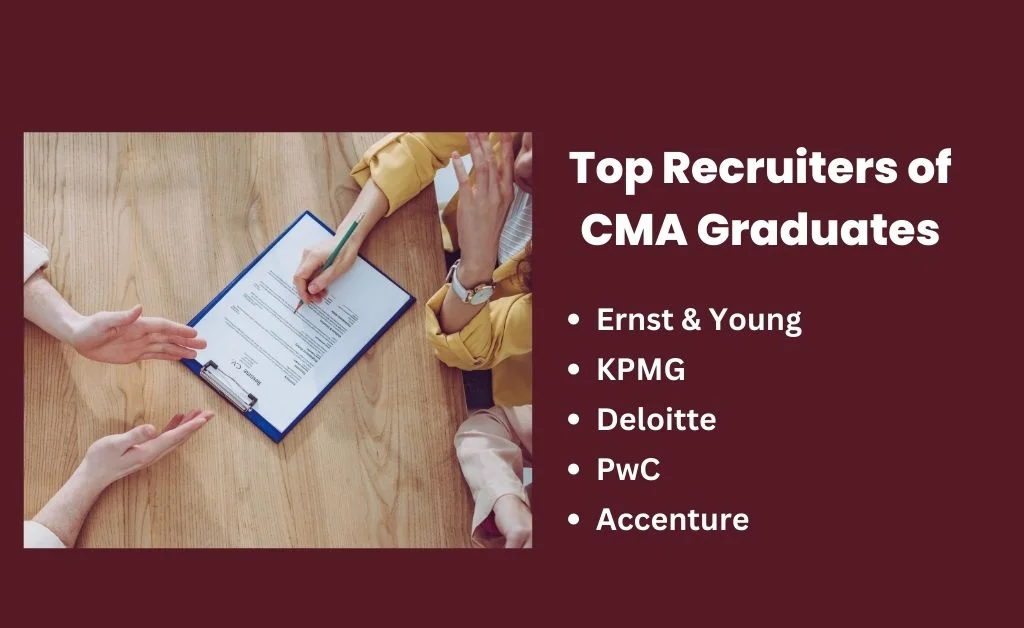
CMA graduates have a wide range of job opportunities in various industries.
Apart from the consulting firms, manufacturing companies hire CMAs including-
- General Electric (GE)
- Unilever
- Nestle
The healthcare industry is another sector that requires skilled CMAs to manage finances efficiently.
Moreover, many government agencies seek certified management accountants for auditing purposes or other financial roles. Some popular government employers are the Federal Reserve Bank and Internal Revenue Service (IRS).
There are plenty of job opportunities available for CMA graduates across different sectors worldwide. They can choose from various options based on their interests and skills.
Conclusion
To sum it up, the CMA course is an excellent choice for those who want to pursue a career in accounting and finance. With its comprehensive curriculum and industry recognition, you can be assured that this course will equip you with the knowledge and skills needed to succeed in your profession. However, before enrolling in any CMA course, it’s crucial to do your research first.
Consider factors such as cost, accreditation, the reputation of the institute offering the course, and whether or not it aligns with your career goals. Remember that while pursuing a CMA certification is a great way to enhance your career prospects, there are also alternative courses available. So make sure you explore all options before making a decision.
Frequently Asked Questions (FAQs)
It takes approximately 1-2 years to complete the CMA course.
No, there is no age limit for appearing in these exams.
Yes, you can pursue other courses along with your CMA studies if they do not clash with each other’s schedules.
After completing your CMA course successfully, you become eligible for job roles such as financial analyst, cost accountant, and senior financial analyst among others.
CMA exams are considered challenging but not impossible if you have prepared well in advance with proper strategy and dedication.
It is valid up to a period of 7 years after registration.
Yes, A Cost Accountant can set up his own firm as a proprietor.

